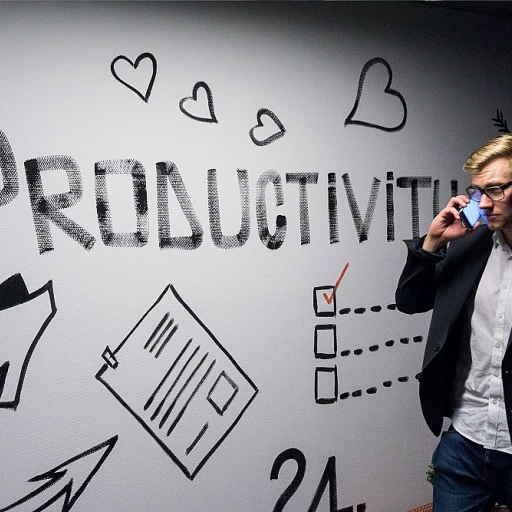
Understanding the role of artificial intelligence in inclusive HR
AI’s Growing Influence on Inclusive Workplaces
Artificial intelligence is rapidly transforming how organizations approach inclusion and diversity (I&D) in the workplace. As companies strive to create more inclusive environments, AI offers new strategies to support these goals. From daily interactions to long-term business practices, AI-driven tools are helping HR professionals and i&d professionals make lasting impact on workplace culture.
Leading organizations, including those highlighted at events like the SHRM Inclusion Conference at the Gaylord Rockies Resort Convention Center, are exploring how AI can enhance inclusion and diversity. These sessions led by experts focus on practical ways to use AI for more inclusive hiring, talent management, and employee engagement. If you want to learn more about best practices for inclusive hiring with AI, there are resources available that detail actionable steps for organizations.
How AI Supports I&D Strategies
AI’s role in HR is not just about automation. It’s about supporting inclusive innovative practices that value diverse perspectives and foster an inclusive workplace. Here’s how AI is making a difference:
- Identifying and reducing unconscious bias in recruitment and promotion processes
- Personalizing employee experiences to ensure everyone feels valued
- Analyzing workplace data to uncover patterns that may impact inclusion and equity
- Supporting account access and communication for all employees, regardless of background
As more organizations register for events and sessions focused on inclusion, the demand for AI-driven solutions continues to grow. The SHRM Inclusion event and similar conferences provide opportunities to learn, register, and connect with others committed to building inclusive workplaces.
Ultimately, the integration of AI in HR is about creating a workplace where everyone can thrive. By adopting these technologies and best practices, businesses can ensure their I&D strategies have a lasting impact on employees and the overall workplace culture.
AI-driven recruitment: reducing bias and improving diversity
How AI Recruitment Tools Foster a More Inclusive Workplace
Artificial intelligence is reshaping how organizations approach recruitment, making it easier to support inclusion and diversity (I&D) strategies. AI-driven recruitment tools can help reduce unconscious bias in the hiring process, leading to a more inclusive workplace culture. These tools analyze job descriptions, screen resumes, and even conduct initial interviews, all while focusing on skills and experience rather than personal characteristics.- Bias Reduction: AI systems can be trained to ignore demographic information, focusing on qualifications and competencies. This helps organizations attract talent from diverse backgrounds and ensures fairer candidate selection.
- Wider Talent Pools: By automating the screening process, AI enables HR teams to consider a broader range of applicants, including those who might have been overlooked by traditional methods.
- Consistent Evaluation: AI tools apply the same criteria to all candidates, reducing the risk of subjective judgments and supporting best practices in inclusive hiring.
Personalized employee experiences through AI
Creating Tailored Employee Journeys with AI
Personalization is becoming a cornerstone of modern HR strategies, especially for organizations aiming to foster an inclusive workplace culture. Artificial intelligence is now enabling HR teams to deliver experiences that adapt to the unique needs and backgrounds of every employee. This shift supports inclusion and diversity (I&D) professionals in their mission to create lasting impact through daily interactions and business practices.
AI-powered platforms can analyze employee data to identify patterns and preferences, helping organizations design content and programs that resonate with diverse perspectives. For example, AI can recommend learning modules, mentorship opportunities, or wellness resources tailored to individual interests and career goals. This approach not only supports talent development but also ensures that employees from all backgrounds feel valued and included in the workplace.
- Account access and communication: AI-driven chatbots and virtual assistants offer real-time support, answering questions about company policies, benefits, or inclusion initiatives. This improves accessibility for employees who may have different communication needs or work schedules.
- Inclusive innovative feedback systems: AI tools can gather and analyze feedback from employees, highlighting areas where inclusion and diversity efforts are succeeding or need improvement. This data-driven approach helps HR teams refine their strategies and adopt best practices for an inclusive workplace.
- Event and session recommendations: AI can suggest relevant sessions at conferences like the SHRM Inclusion Conference, held at venues such as the Gaylord Rockies Resort Convention Center. Employees can learn, register, and participate in sessions led by I&D professionals, ensuring everyone has access to valuable learning experiences.
By leveraging AI, organizations are better equipped to support employees throughout their journey, from onboarding to ongoing development. These practices contribute to a workplace where inclusion will thrive, and where diversity, equity, and inclusion are not just goals but daily realities. For more insights into how AI is transforming employee experiences, explore this resource on how recruitment chatbots are transforming the hiring process.
Challenges and ethical considerations of AI in inclusive HR
Balancing Automation with Human Judgment
Artificial intelligence is transforming how organizations approach inclusion and diversity (I&D) in the workplace. However, relying solely on algorithms can introduce new risks. AI systems, if not carefully designed, may reinforce existing biases present in historical data. This is why many I&D professionals emphasize the need for ongoing human oversight in AI-driven HR practices. Organizations must ensure that automated decisions are regularly reviewed by diverse teams, bringing in multiple perspectives to support fair and inclusive outcomes.Transparency and Accountability in AI Systems
A major challenge for HR leaders is ensuring transparency in how AI makes decisions that affect employees. Employees and candidates want to understand how their data is used and how AI influences their career opportunities. Clear communication about AI-driven processes is essential to building trust and fostering an inclusive workplace culture. Best practices include providing accessible content and regular sessions led by experts at events such as the SHRM Inclusion Conference at Gaylord Rockies Resort Convention Center. These sessions help HR teams learn, register for updates, and stay informed about evolving strategies.Ethical Use of Employee Data
AI in HR relies on large volumes of employee data to personalize experiences and improve workplace culture. However, this raises ethical questions about privacy and consent. Organizations must develop robust data governance strategies to protect account access and sensitive information. It is crucial to inform employees about how their data will be used and to obtain explicit consent, especially when implementing new AI-driven practices. This approach supports a more inclusive and innovative workplace, where employees feel respected and valued.Mitigating Unintended Consequences
Even with the best intentions, AI can sometimes produce unintended outcomes that impact inclusion and diversity efforts. For example, automated screening tools might inadvertently filter out talent from underrepresented groups. To address this, organizations should regularly audit their AI systems, incorporate feedback from diverse perspectives, and adjust their strategies as needed. Ongoing education through conferences, daily interactions, and sharing best practices helps HR teams stay ahead of potential challenges and create a lasting impact on business outcomes.Building Trust Through Inclusive AI Practices
Ultimately, the success of AI in supporting I&D depends on the trust employees place in these systems. By prioritizing ethical considerations, transparency, and continuous improvement, organizations can foster an inclusive workplace where everyone feels empowered to contribute. Participating in events like the SHRM Inclusion Conference and engaging with content from leading authorities in the field are effective ways to learn, register for new sessions, and strengthen inclusive strategies that benefit both employees and the business.Measuring the impact of AI on inclusion efforts
Key Metrics for Evaluating AI’s Contribution to Inclusion
Organizations aiming to foster an inclusive workplace culture increasingly rely on data-driven strategies to measure the impact of artificial intelligence on their inclusion and diversity (I&D) efforts. The Society for Human Resource Management (SHRM) and other I&D professionals recommend tracking a mix of quantitative and qualitative indicators to ensure that AI-driven practices support real progress.- Diversity of Hires: Monitor changes in the representation of diverse perspectives across all levels of the business. AI can help identify trends in talent acquisition, but it’s essential to regularly review whether these shifts reflect genuine inclusion rather than just surface-level diversity.
- Employee Sentiment: Use AI-powered sentiment analysis to gauge daily interactions and overall employee experience. This helps organizations understand how inclusive their workplace feels to employees from different backgrounds.
- Retention Rates: Track retention among underrepresented groups. A truly inclusive innovative environment will see improved retention as employees feel supported and valued.
- Participation in Inclusion Initiatives: Measure engagement in inclusion conference sessions, training events, and best practices workshops. High participation rates, such as those seen at SHRM Inclusion events at venues like the Gaylord Rockies Resort Convention Center, can indicate a strong commitment to I&D strategies.
- Promotion and Advancement: Analyze promotion rates for diverse talent. AI can help flag patterns that may indicate bias or highlight inclusive practices that support equitable advancement.
Ensuring Lasting Impact Through Continuous Improvement
Measuring the impact of AI on inclusion is not a one-time event. Organizations must regularly review their data and adjust their strategies to maintain momentum. This includes:- Conducting regular audits of AI-driven processes to ensure fairness and transparency
- Soliciting feedback from employees to understand their experiences with AI in the workplace
- Registering for industry events and sessions led by I&D professionals to stay updated on best practices
- Leveraging content and resources from conferences like SHRM Inclusion to inform ongoing improvements
The future of inclusive HR: trends to watch
Emerging Technologies Shaping Inclusion
AI is rapidly evolving, and its influence on inclusion and diversity (I&D) strategies in the workplace is only set to grow. Organizations are increasingly leveraging AI to support inclusive practices, from daily interactions to large-scale talent management. New tools are being developed to analyze workplace culture, identify gaps in diversity equity, and suggest actionable strategies for improvement. These technologies help I&D professionals and HR leaders create a more inclusive workplace by providing real-time feedback and data-driven insights.Events and Learning Opportunities for I&D Professionals
Staying updated on best practices is crucial. Conferences and events like the SHRM Inclusion Conference at the Gaylord Rockies Resort Convention Center offer sessions led by experts in inclusive innovative HR practices. These sessions cover the latest trends, such as AI-powered content analysis, inclusive hiring strategies, and fostering diverse perspectives within teams. Attending these events allows HR professionals to learn, register for workshops, and gain account access to exclusive content that supports ongoing development.- Sessions on AI-driven inclusion strategies
- Workshops focused on building an inclusive workplace culture
- Networking with I&D professionals and sharing best practices
Lasting Impact on Business and Employees
The adoption of AI in HR is not just about technology—it’s about creating a lasting impact on employees and organizations. By integrating AI into daily HR practices, businesses can ensure that inclusion will remain a core value. This approach supports diverse talent, enhances employee experiences, and drives better business outcomes. As more organizations embrace these tools, the future of work will be defined by a commitment to inclusion diversity and continuous improvement.Key Takeaways for the Future
- AI will continue to play a central role in shaping inclusive workplace strategies
- Ongoing education through events and sessions is essential for I&D professionals
- Inclusive practices supported by AI can lead to a more engaged and innovative workforce
- Organizations must remain vigilant about ethical considerations and measure the impact of their initiatives












